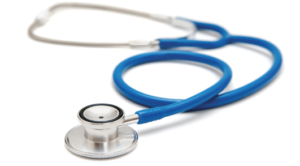Health facilities double billing in South Dayi
 Mr Mawuko Tsigbey, South Dayi District Manager of the National Health Insurance Authority (NHIA), has noted all health facilities in the District were collecting illegal fees from patients.
Mr Mawuko Tsigbey, South Dayi District Manager of the National Health Insurance Authority (NHIA), has noted all health facilities in the District were collecting illegal fees from patients.
He said some health service providers were also submitting claims to the Authority for double payments after subscribers had been paid.
Mr Tsigbey said this when he presented findings of a survey undertaken by the Office in March 2018 of all NHIA accredited facilities in the District, using unannounced facility monitoring and research, mystery shopping and client visits.
The report included inputs from about 2000 people collated during 30 community durbars organised in the District in the months of June and July 2018, detailing complaints of extra payments, some amounting to several hundreds of cedis.
Mr Tsigbey said the survey was undertaken to find reasons behind shrinking subscriptions and renewals, and to confirm the prevalence and extent of illegalities levelled against health facilities in the District.
He said ultimately, the findings would help stakeholders find better ways of sustaining the Scheme, and improve service delivery.
“Co-payment is very widespread and is being practised by NHIS credentialed healthcare facilities across Ghana. One of the justifications offered by the providers engaged during the exercise was that the prices at which they buy items to deliver care were higher than that which was on the NHIS tariff,” he stated.
Mr Tsigbey lamented that co-payments not only discouraged many from patronising the NHIS, but also eroded the “very foundational purpose for establishing the NHIS”, which was to end the cash and carry system that discouraged about 80 per cent of Ghanaians from accessing quality health care.
He said from a total of 66 respondents at all NHIS accredited facilities, the research found that co-payments ranging from GH¢1.00 to GH¢80.00 were made, bringing to an average of GH¢11.66 card bearers made to pay to access healthcare in the District.
The findings showed that the practice was prevalent at the Out Patients Departments, Consulting rooms, Laboratories, Maternity Units, and Dispensaries.
It also revealed that cash payments were being demanded in the name of security, sustainability levy, medications, delivery kits, and disinfectants among others.
“Pregnant women seeking antenatal and delivery services are the worst victims of these illegal fees because they are made to pay the highest amounts compared to clients seeking general OPD services. The maternity units, particularly at the Tsanakpe Health Centre and Dzake Health Centre were charging the highest illegal fees,” Mr Tsigbey said.
The report also said that subscribers were made to pay for oxygen at both the Peki, and Anfoega Government Hospitals, although it was covered by the Scheme.
It also said pregnant women were among the majority of patients locked up in medical detention at the various health centres for their inability to pay additional fees.
The report again said extra payments to access the X-ray photography device at the Peki Government Hospital often delayed patients who could not afford, leading to some patients developing complications.
Negative and unprofessional attitudes by health service staff were captured in the report, which also concluded that patients heaped the bulk of the blame on the Health Insurance Authority, instead of care providers.
Dr Makafui Alphonse, Acting Medical Superintendent of the Peki Government Hospital, said top up payments were becoming increasingly necessary to enable NHIS subscribers access quality health care.
He said co-payments became a better option for transfers to other health facilities, citing among others, the bad nature of roads in the District.
Dr Alphonse further said most health facilities required upgrades, and mentioned Peki Governmen Hospital’s 40 year old X-ray photography machine, which kept breaking down, compelling management to demand some fees from subscribers for its maintenance.
He said the prices of some medicines on the NHIS list were “very low”, and that it forced pharmaceutical companies that supplied them to produce substandard drugs.
The Medical Superintendent therefore appealed to stakeholders to intervene and consider frequent reviews of service costs.
Source: GNA
